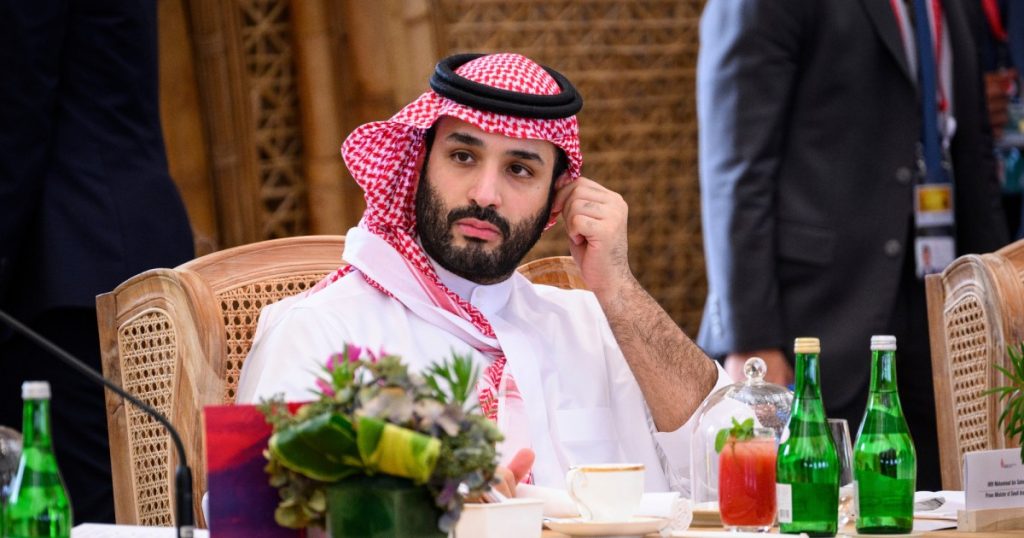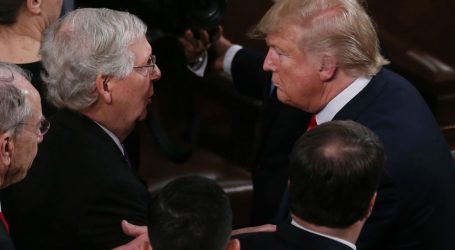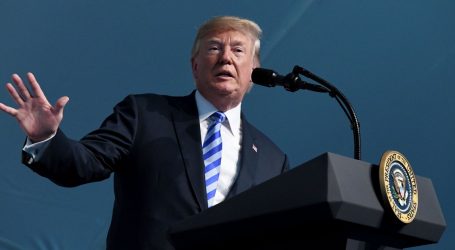Muhammed Bin Salman Says He Will “Continue Doing Sportswashing”
Mohammed bin Salman.Leon Neal / Associated Press
Fight disinformation: Sign up for the free Mother Jones Daily newsletter and follow the news that matters.In 2018, according to the US government, Muhammed Bin Salman—the de facto ruler of Saudi Arabia—personally ordered the assasination of a journalist, Jamal Khashoggi, at the Saudi embassy in Istanbul. Five years later, MBS just might be the most powerful figure in international sports.
The Public Investment Fund, Saudi Arabia’s sovereign wealth fund that MBS chairs, is in the midst of a multi-billion-dollar spending spree. In 2021, it acquired the English Premier League soccer club Newcastle United, and it hosted its first F1 race in Jeddah. This June, around the same time it effectively took over golf’s PGA tour, the PIF took over Saudi Arabia’s domestic soccer league and began spending huge sums of money on big-name talent from top European leagues. As I wrote in a story for the magazine last year, petro-states have been breaking and remaking the economics of soccer for a decade-and-a-half, but what Saudi Arabia is doing right now is on an entirely different level.
This week, in an interview with Fox News, MBS was asked about the charge from groups such as Human Rights Watch that his government’s investment in international sporting events is a kind of “sportswashing”—that is, an attempt to burnish his regime’s image (and his own) by attaching it to a popular entertainment spectacle.
“If sportswashing [is] going to increase my GDP by 1 percent, then we’ll continue doing sportswashing,” MBS said.
“I don’t care,” he continued. “I have 1-percent GDP growth from sports and I’m aiming for another 1.5 percent. Call it whatever you want—we’re going to get that other 1.5 percent.”
He’s right, up to a point. MBS’ investment in international sports is a big economic play. He’s got a plan called Vision 2030, which is all about diversifying the Saudi economy. He wants to use the country’s vast oil wealth to establish a more sustainable national economy built around, well, the things you can buy with vast oil wealth. Sports happens to be for sale, and its huge economic value derives from its huge international popularity—so when you attach your national brand to international sporting events (and international sports stars), you are securing both economic and cultural clout.
But again, we are still talking about someone who US authorities say ordered the assassination of a journalist five years ago. Taking over popular sporting institutions in other countries can never just be an economic play—it is not like acquiring a controlling stake in a zinc mine. It comes with real cultural power. And that power manifests itself in a broader international complicity. “Sportswashing” is not just about the people and countries who actively do it; it’s also about the ways it ropes in everyone else, to strengthen this act of national rebranding every time they simply want to watch sports on a Saturday morning.
MBS might say he doesn’t “care” about the sportswashing criticism. That sense of impunity is all the more reason to keep talking about it.




